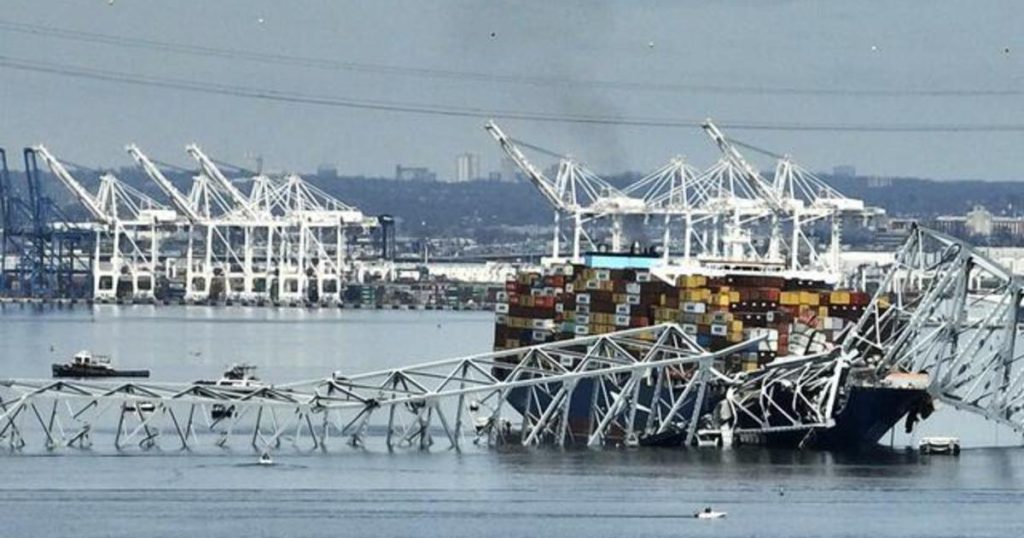The collapse of the Francis Scott Key Bridge in Baltimore is expected to have a significant impact on the supply chain and economy, as the bridge served as a crucial gateway to the port of Baltimore. The 1.6-mile long bridge played a vital role in transporting goods and services to and from the busy port, and its closure has caused disruptions that are estimated to cost the port millions of dollars per day. This loss of revenue will not only affect the port itself but also have a ripple effect on consumers who rely on goods that pass through the port.
The closure of the Francis Scott Key Bridge is expected to have a domino effect on the supply chain, as the port of Baltimore is a key hub for the transportation of goods along the East Coast. Experts predict that the port’s reduced capacity will lead to delays in the delivery of goods, which will in turn impact businesses across various industries. The inability to transport goods efficiently will result in increased costs and decreased profits for businesses, ultimately affecting the economy at large.
The closure of the bridge will also have a direct impact on the residents of Baltimore, as the port is a significant source of employment in the region. Many local residents rely on the port for jobs and income, and the loss of revenue due to the bridge collapse will likely result in job losses and reduced economic opportunities for the community. The closure of the bridge will also affect businesses that rely on the port for their operations, leading to further economic hardships for the region.
In addition to the immediate economic impacts of the bridge collapse, experts warn that the long-term consequences could be even more severe. The disruption in the supply chain caused by the closure of the Francis Scott Key Bridge could have lasting effects on the economy, as businesses struggle to recover from the financial losses incurred during the period of reduced capacity at the port. The inability to transport goods efficiently could lead to further challenges for businesses, potentially resulting in closures and layoffs.
The closure of the Francis Scott Key Bridge highlights the vulnerability of the infrastructure that supports the supply chain and economy. This incident serves as a wake-up call for the need to invest in infrastructure improvements and maintenance to prevent similar disruptions in the future. As the port of Baltimore plays a crucial role in the transportation of goods along the East Coast, ensuring the reliability and efficiency of the infrastructure that supports the port is essential for maintaining a strong and resilient economy.
Overall, the collapse of the Francis Scott Key Bridge in Baltimore is expected to have far-reaching impacts on the supply chain, economy, and residents of the region. The closure of the bridge has disrupted the flow of goods to and from the port of Baltimore, leading to significant financial losses and challenges for businesses and consumers. As efforts are made to repair the bridge and restore full functionality to the port, the need to invest in infrastructure improvements becomes increasingly apparent in order to prevent future disruptions and safeguard the economy.


